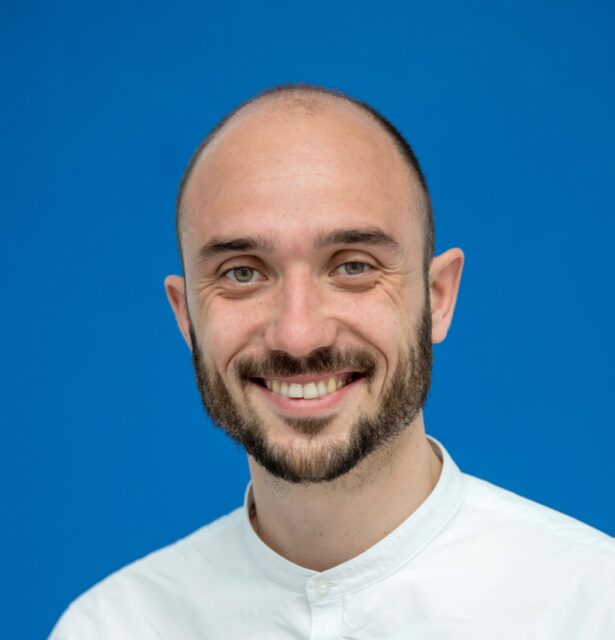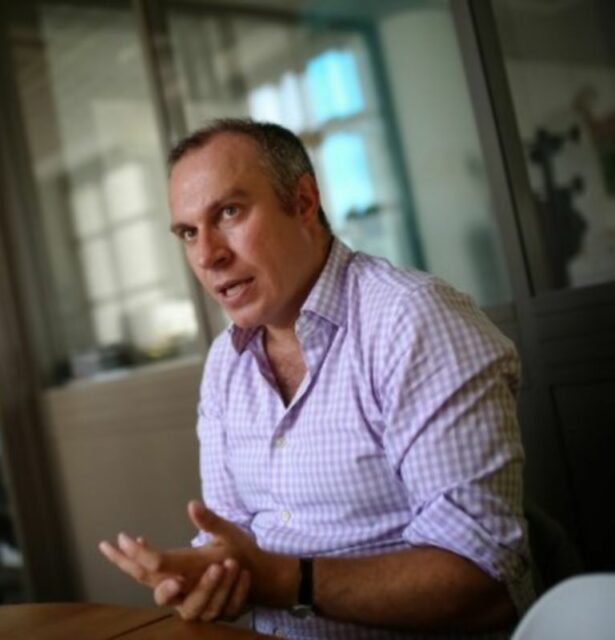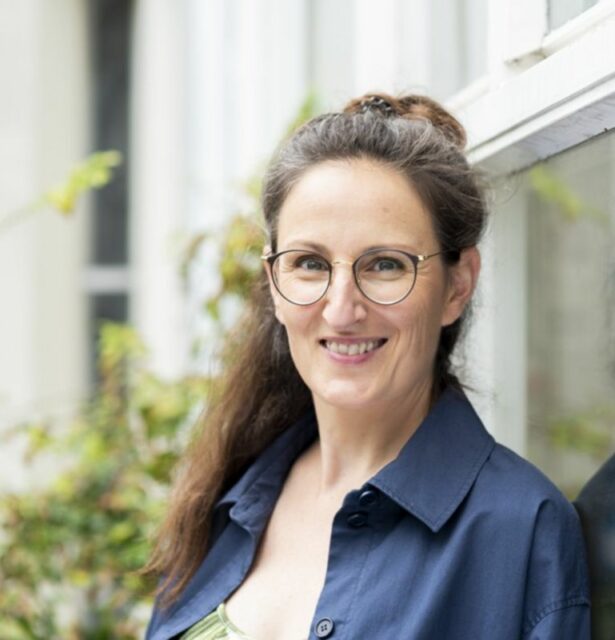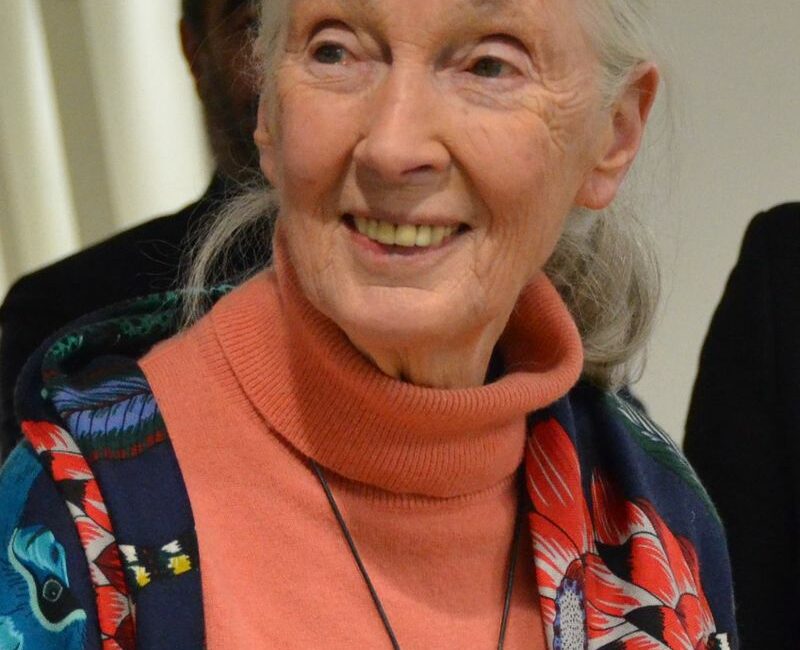
Jane Goodall, née le 3 avril 1934 à Londres, en Angleterre, est une pionnière dans les recherches sur les rapports humain-animal et s’investit depuis toute petite dans la préservation de la vie animale sauvage d’Afrique. D’une petite fille rêveuse, Jane a grandi pour devenir une scientifique aventurière doublée d’une activiste. Dre Jane Goodall est aujourd’hui une primatologue, anthropologue et éthologue reconnue à travers le monde entier.
Elle est notamment la première à avoir observé et rapporté que les chimpanzés utilisaient des outils pour s’alimenter. Ses travaux ont transformé la compréhension des rapports entre les êtres humains et les animaux.
Elle a fondé l’Institut Jane Goodall pour la protection de la biodiversité, l’aide au développement durable et l’éducation.
A l’âge de 23 ans, Jane Goodall est invitée au Kenya par une amie où elle fait la rencontre du célèbre paléoanthropologue kényan Louis Leakey et devient son assistante.
En 1960, elle décide de s’installer en Tanzanie afin d’observer minutieusement les chimpanzés et entame une étude qui deviendra la plus longue jamais menée sur le terrain.
Quelques mois plus tard, elle découvre que les chimpanzés n’étaient pas strictement végétariens, qu’ils mangeait également de la viande. Elle constate par la suite qu’un chimpanzé a recourt à un morceau de paille qu’il enfonce dans une termitière afin de manger les insectes posés dessus.
En 1964, Jane Goodall crée le centre de recherche de Gombe Stream en Tanzanie, toujours en place aujourd’hui. Deux ans plus tard, elle obtient sa thèse d’éthologie à l’université de Cambridge, après avoir notamment publié des articles dans le National Geographic.
1977 qu’est fondé aux États-Unis l’institut Jane Goodall, une organisation internationale visant à la conservation de l’environnement et du monde sauvage, toujours au cœur des préoccupations actuelles. L’institut Jane Goodall France a quant à lui été créé en 2004.
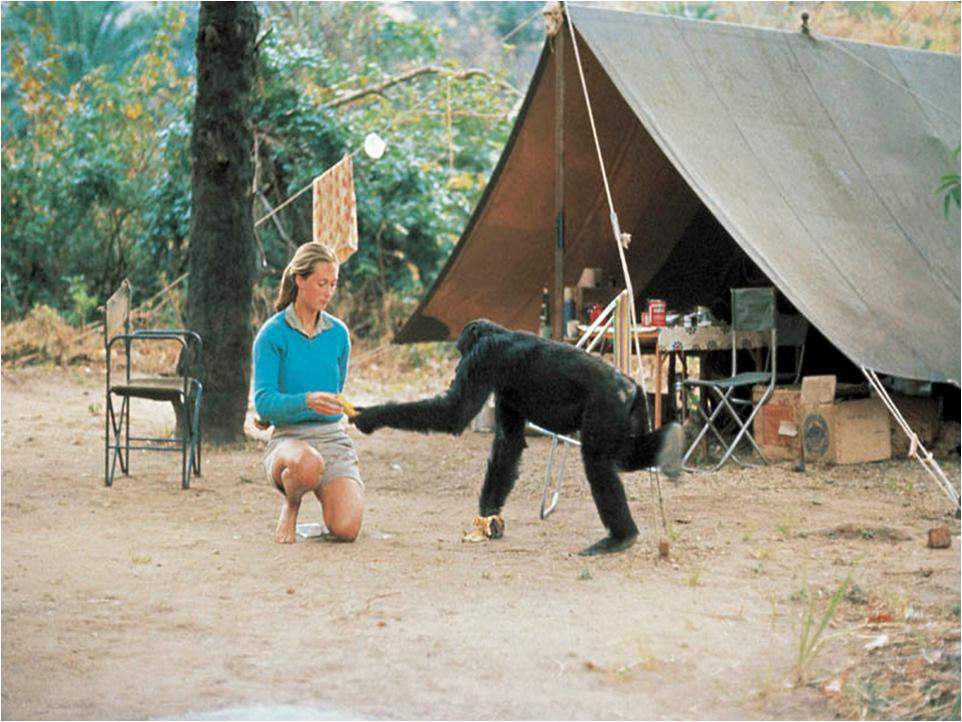
Aujourd’hui, Dre Goodall se déplace encore à travers le monde pour des conférences, des colloques, des symposiums. Elle a animé deux discussions TED : une, sur ce qui nous sépare des chimpanzés et la seconde sur la cohabitation entre humains et animaux.
C’est une activiste née, qui continuera de défendre ses valeurs et de prendre position sur le traitement des animaux. Le dernier combat du Dre Goodall concerne les recherches sur les animaux en laboratoire, qu’elle voudrait voir prendre fin, même si l’éthologue sait pertinemment que cela n’arrivera pas. De ce fait, elle canalise ses efforts sur la nouvelle génération de scientifiques, en leur demandant d’avoir un peu plus de compassion envers ces animaux.
Au cours de ses années à Gombe, Jane a connu trois générations de chimpanzés, créant des liens forts avec les familles. Aujourd’hui, un peu plus de cinquante ans après, Dre Goodall encourage les pays africains à développer des programmes de tourisme « nature-friendly » pour élargir la prise de conscience.
Lorsque j’étais petite et que je rêvais d’aller en Afrique pour vivre parmi les animaux et écrire des livres à leur sujet, ma mère me répé
Dre Goodall se déplace encore à travers le monde pour des conférences, des colloques, des symposiums…
Dre Jane Goodall a aussi animé deux discussions TED, la première sur ce qui nous sépare des chimpanzés et la seconde sur la cohabitation entre humains et animaux.
Jane est une activiste née, qui continuera de défendre ses valeurs et de prendre position sur le traitement des animaux. Le dernier combat du Dre Goodall concerne les recherches sur les animaux en laboratoire, qu’elle voudrait voir prendre fin, même si l’éthologue sait pertinemment que cela n’arrivera pas. De ce fait, elle canalise ses efforts sur la nouvelle génération de scientifiques, en leur demandant d’avoir un peu plus de compassion envers ces animaux.
Au cours de ses années à Gombe, Jane a connu trois générations de chimpanzés, créant des liens forts avec les familles. Aujourd’hui, un peu plus de cinquante ans après, Dre Goodall encourage les pays africains à développer des programmes de tourisme « nature-friendly » pour élargir la prise de conscience.
“Lorsque j’étais petite et que je rêvais d’aller en Afrique pour vivre parmi les animaux et écrire des livres à leur sujet, ma mère me répétait souvent : “Si tu souhaites quelque chose de tout ton cœur et mets tout en œuvre pour l’atteindre, sans relâche, tu trouveras invariablement un moyen d’accomplir ton rêve.”
Dr. Jane Goodall

